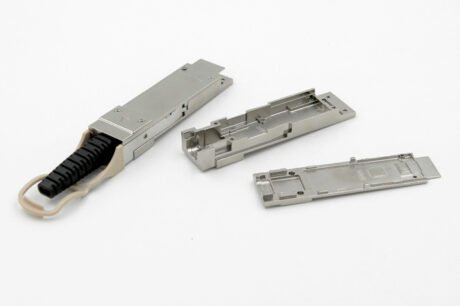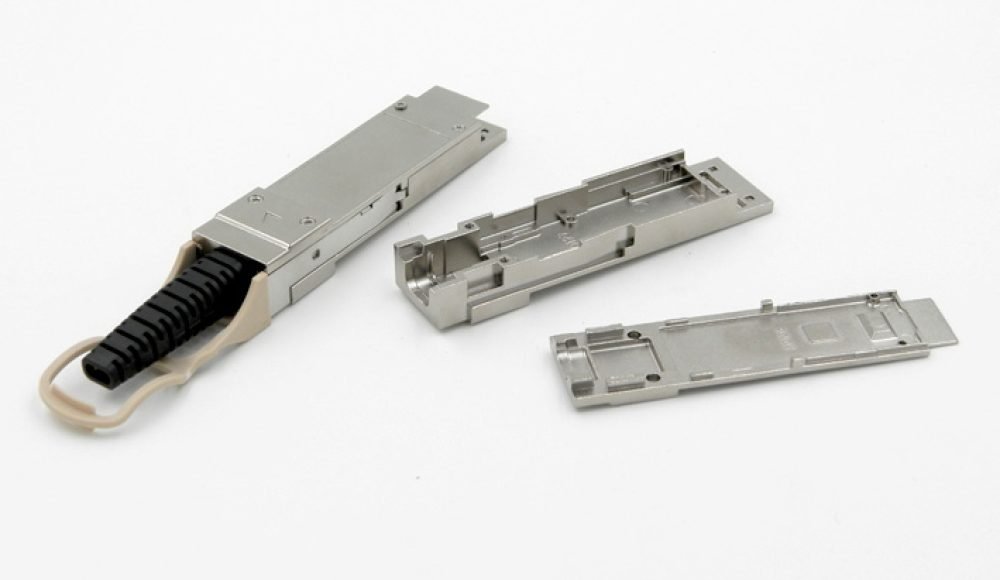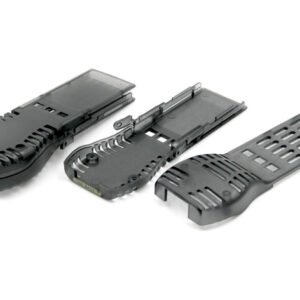Understanding Optical Modules
Optical modules, often referred to as transceivers, are essential components in modern networking infrastructure. Optical module cases play a pivotal role in the optimal performance and longevity of optical modules. These devices are responsible for converting electrical signals into optical ones and vice versa, facilitating high-speed data transmission over optical fiber networks. Their indispensable role is to achieve efficient and reliable communication between network devices. Ensure seamless data exchange to support the growing demands of today’s digital environment.
There are various types of optical modules, characterized primarily by their form factors and performance capabilities. For instance, Small Form-factor Pluggable (SFP) modules are widely used for both telecommunication and data communication applications. They are valued for their compact size and flexibility, making them suitable for a range of network configurations. Quad Small Form-factor Pluggable (QSFP) modules, which are successors to SFPs, offer higher data rates and greater port density, which is particularly beneficial for data centers requiring enhanced speed and efficiency. Additionally, C Form-factor Pluggable (CFP) modules support even higher data rates, catering primarily to long-distance telecommunication networks.
The Role of Optical Modules in Networking
The evolution of optical modules has been driven by the insatiable demand for higher data transfer speeds and improved network reliability. Advances in technology have led to the development of more sophisticated transceivers capable of supporting increasingly higher bandwidths. This evolution includes not only enhancements in optic signal processing but also improvements in the physical design. To meet the growing demands of various industries.
As optical modules continue to advance, the protection and design of their cases become crucial for sustaining their functionality and extending their lifespan. Properly designed cases ensure the modules remain secure from environmental factors, physical damage, and electromagnetic interference, which can compromise performance. Thus, the attention to optical module cases is pivotal for the ongoing advancement of this technology. And setting a foundation for future innovations in networking infrastructure.
The Crucial Role of Optical Module Cases in Future Technological Advancements
Optical module cases play a pivotal role in the optimal performance and longevity of optical modules. These enclosures provide the necessary protection against physical damage, environmental hazards, and operational stresses, making durability a key feature. Well-designed cases prevent mechanical shock and vibration, thereby preserving the module’s functionality over time.

Another critical characteristic is thermal management. Optical modules generate heat during operation, and an effective case must dissipate this heat efficiently to prevent overheating. This often involves integrating advanced materials with high thermal conductivity and innovative architectural designs like heat sinks or vents to facilitate better airflow.
Electromagnetic interference (EMI) shielding is equally paramount. EMI can adversely affect signal integrity, leading to data loss or communication errors. Cases made from materials with high EMI shielding properties—such as certain alloys or specialized coatings—are essential for maintaining the module’s operational integrity in electromagnetically noisy environments.
The choice of materials for optical module cases is often driven by a balance of durability, thermal management, and EMI shielding. Common materials include aluminum, known for its lightweight and thermal conductivity, and plastic composites, favored for their versatility and cost-effectiveness. Recent breakthroughs in material science, such as graphene composites, promise to enhance the performance characteristics of future optical module cases, offering superior strength and thermal management capabilities.
Importance
Real-world applications underscore the significance of robust optical module cases. In high-speed data centers, for example, the integrity of these cases can directly influence network efficiency and reliability. Field reports highlight instances where inadequate casing led to module failures, resulting in considerable downtime and financial losses.
Looking ahead, innovations in optical module case design are crucial to meeting evolving technological challenges. As data rates continue to climb, with the proliferation of IoT devices and the rollout of 5G networks, the demands on optical modules intensify. Advanced cases will need to offer superior thermal management and EMI shielding while being adaptable to various form factors and densities. As these innovations materialize, they will play an essential role in sustaining and advancing the frontiers of networking technologies.
We sincerely hope to cooperate with you to build our future together!



